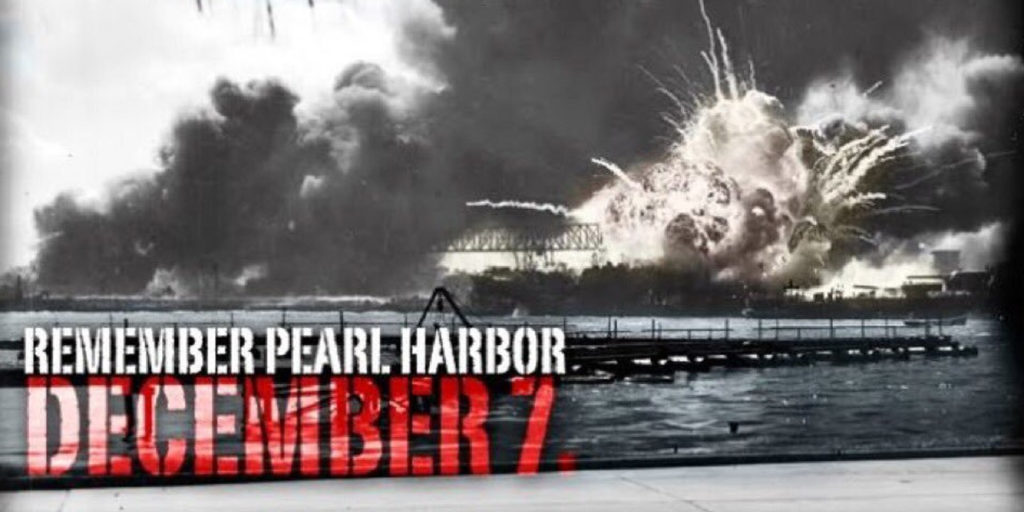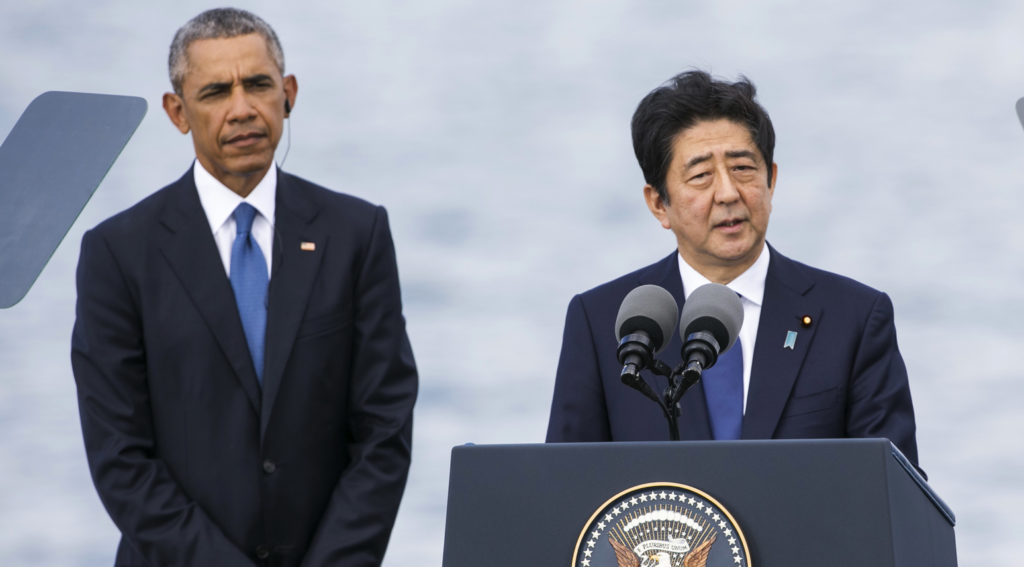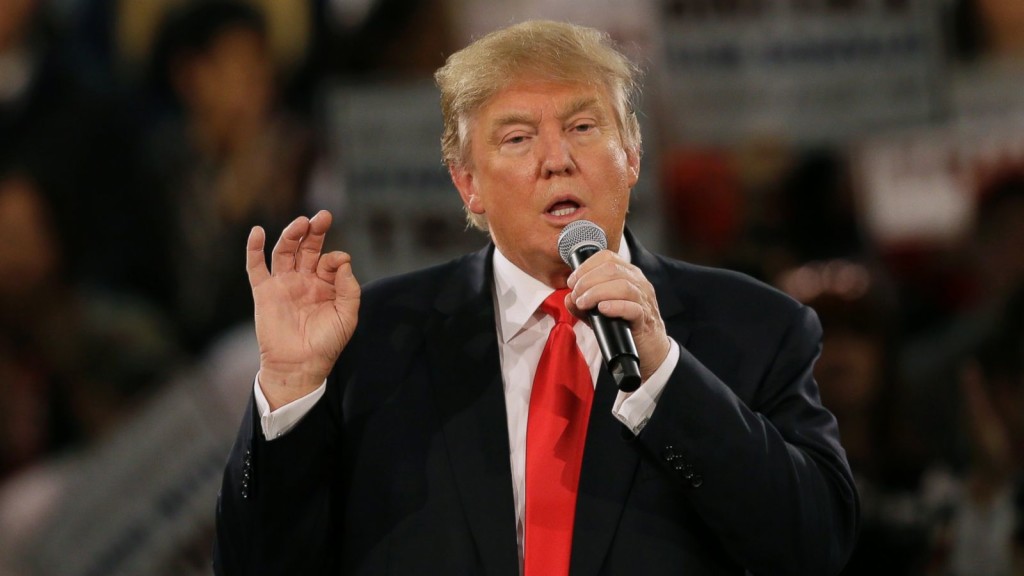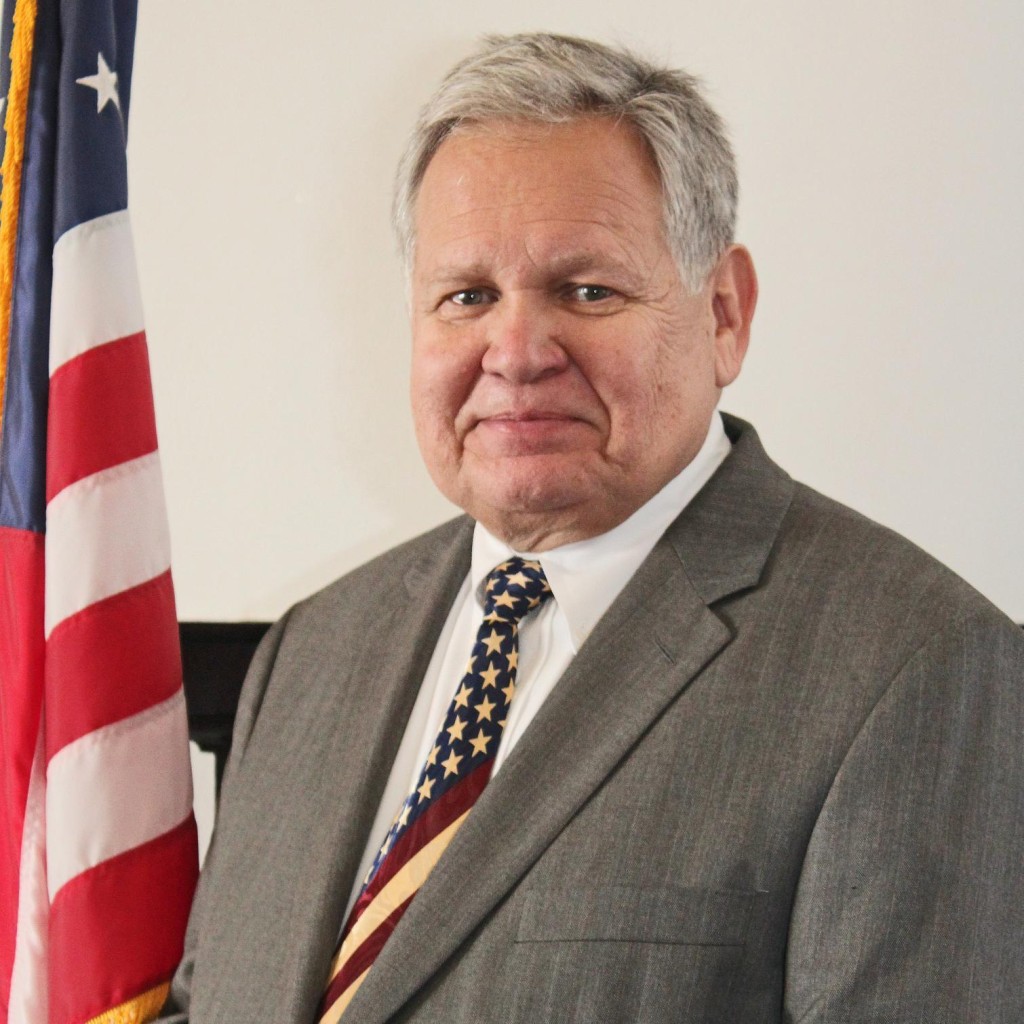Jim Zeigler: Pearl Harbor in Alabama

Eighty-one years ago, in the sneak attack on Pearl Harbor, Japanese forces surprised and killed 2,403 Americans and wounded more than 1,100. Thirty-two Alabama servicemen died aboard the USS Arizona, docked in Pearl Harbor. In a speech to the U.S. Congress the next day, President Franklin Roosevelt referred to December 7, 1941, as “a date which will live in infamy.” That prediction remains true on this observance of Pearl Harbor Day, 2022. In December 1941, the people of Alabama, and indeed most of the then-48 states, did not know where Pearl Harbor was. They learned quickly and have never forgotten. The 1941 Congress quickly passed a formal declaration of war, and America entered World War II. The attack on Pearl Harbor swept away the feeling of security of many Americans that we were immune from attack due to our separation from the old world by the Atlantic and Pacific oceans. Suddenly, Pearl Harbor, Hawaii, did not seem so distant from Alabama. The Pearl Harbor attack ignited American determination to disable the Japanese war machine. Americans were filled with patriotism, and individuals sought to aid in victory. Many enlisted in the military and fought for their country. My own father, Bloise Zeigler, was already working in a defense-support job at Huntsville Arsenal (now Redstone Arsenal). Two days after Pearl Harbor, Dad went down and enlisted. The next day, management pulled him into the Huntsville office and told him they had gotten his enlistment canceled because he was needed in the defense effort right where he was, in a vital defense job. He served his country right here in Alabama. For other Alabamians, their role in the war effort consisted of rationing their use of items such as gasoline, sugar, butter, and canned goods. A war was to be won, and Alabama folks were willing to do their part to win it. As we remember those who lost their lives in the Pearl Harbor attack, let us be mindful of the privilege of living in America. After World War II, America became a world superpower. Today, America is blessed with abundant wealth, resources, and global influence. Most of all, America is blessed with citizens who face adversity with resilience and determination. Jim Zeigler is the State Auditor of Alabama.
Jim Zeigler: Pearl Harbor and Alabama 80 years later

Eighty years ago, in the sneak attack on Pearl Harbor, Japanese forces surprised and killed 2,403 Americans and wounded more than 1,100. In a speech to Congress the next day, President Franklin Roosevelt referred to December 7, 1941, as “a date which will live in infamy.” That prediction remains true on this 80th observance of Pearl Harbor Day, 2021. In December 1941, the people of Alabama, and indeed of most of the then-48 states, did not know where Pearl Harbor was. They learned very quickly and have never forgotten. The Pearl Harbor attack ignited American determination to disable the Japanese war machine. Americans were filled with patriotism, and individuals sought to aid in victory. Many enlisted in the military and fought for our country. My own father, Bloise Zeigler, was already working in a defense-support job at Huntsville Arsenal (now Redstone Arsenal). Two days after Pearl Harbor, Dad went down and enlisted. The next day, management pulled him into the Huntsville office and told him they had gotten his enlistment canceled because he was needed in the defense effort right where he was, in a vital defense job. He served his country right here in Alabama. For other Americans, their role in the war effort consisted of rationing their use of items such as gasoline, sugar, butter, and canned goods. A war was to be won, and Americans were willing to do their parts to win it. As we remember those who lost their lives in the Pearl Harbor attack, let us be mindful of the privilege of living in America. After World War II, America became a world superpower. Today America is blessed with abundant wealth and resources, as well as global influence. Most of all, America is blessed with citizens who face adversity with resilience and determination. Jim Zeigler is the State Auditor of Alabama.
Jim Zeigler: Pearl Harbor in Alabama

Seventy-seven years ago, in the sneak attack on Pearl Harbor, Japanese forces surprised and killed 2,403 Americans and wounded more than 1,100. In a speech to the U.S. Congress the next day, President Franklin Roosevelt referred to December 7, 1941, as “a date which will live in infamy.” That prediction remains true on this observance of Pearl Harbor Day, 2018. In December 1941, the people of Alabama, and indeed of most of the then-48 states, did not know where Pearl Harbor was. They learned very quickly and have never forgotten. The 1941 Congress quickly passed a formal declaration of war, and America entered World War II. The attack on Pearl Harbor swept away the feeling of security of many Americans that we were immune from attack due to our separation from the old world by the Atlantic and Pacific oceans. Suddenly, Pearl Harbor, Hawaii did not seem so distant from Alabama. The Pearl Harbor attack ignited American determination to disable the Japanese war machine. Americans were filled with patriotism, and individuals sought to aid in victory. Many enlisted in the military and fought for their country. My own father, Bloise Zeigler, was already working in a defense-support job at Huntsville Arsenal (now Redstone Arsenal). Two days after Pearl Harbor, Dad went down and enlisted. The next day, management pulled him into the Huntsville office and told him they had gotten his enlistment canceled because he was needed in the defense effort right where he was, in a vital defense job. He served his country right here in Alabama. For other Americans, their role in the war effort consisted of rationing their use of items such as gasoline, sugar, butter, and canned goods. A war was to be won, and Americans were willing to do their parts to win it. As we remember those who lost their lives in the Pearl Harbor attack, let us be mindful of the privilege of living in America. After World War II, America became a world superpower. Today America is blessed with abundant wealth and resources, as well as global influence. Most of all, America is blessed with citizens who face adversity with resilience and determination. ••• Jim Zeigler is the State Auditor of Alabama. He was previously an investigative reporter.
Barack Obama, Japan’s Shinzo Abe decry ‘horrors of war’ at Pearl Harbor

The leaders of Japan and the United States sought to remind the world that even the most bitter enemies can become allies, during a historic pilgrimage to the hallowed waters of Pearl Harbor. Prime Minister Shinzo Abe did not apologize, but conceded Japan “must never repeat the horrors of war again.” Seventy-five years after Japan’s surprise attack, Abe and President Barack Obama peered down Tuesday at the rusting wreckage of the USS Arizona, clearly visible in the tranquil, teal water. In a show of respect for the war dead, Obama and Abe dropped purple petals into the water and stood in silence. More than 1,000 U.S. war dead remain entombed in the submerged ship, which Japan struck as part of the devastating attack that killed more than 2,300 Americans and sent America marching into World War II. “As the prime minister of Japan, I offer my sincere and everlasting condolences to the souls of those who lost their lives here, as well as to the spirits of all the brave men and women whose lives were taken by a war that commenced in this very place,” Abe said later at nearby Joint Base Pearl Harbor-Hickam. That was the closest Abe would get to an apology for the attack. And it was enough for Obama, who also declined to apologize seven months ago when he became America’s first sitting president to visit Hiroshima, where the U.S. dropped an atomic bomb in a bid to end the war. It was enough, too, for Alfred Rodrigues, a U.S. Navy veteran who survived the attack. The 96-year-old said he had no hard feelings and added, “War is war.” “They were doing what they were supposed to do, and we were doing what we were supposed to do,” Rodrigues said before the visit. Abe, who became Japan’s first leader to visit Pearl Harbor with a U.S. president, said the visit “brought utter silence to me.” His remarks capped a day that was carefully choreographed by the U.S. and Japan to show a strong and growing alliance between former foes. Obama and Abe started Tuesday’s activities here with a formal meeting at another nearby military base, in what the White House said was probably Obama’s last with a foreign leader before leaving office in January. It was a bookend of sorts for the president, who nearly eight years ago invited Abe’s predecessor to be the first leader he hosted at the White House. Yet despite the display of unity, there was a point of disagreement the day after about what had happened in the meeting. Japanese officials said that in their talks, Abe and Obama agreed to closely monitor the movements of China’s first and sole aircraft carrier, which has sailed into the western Pacific for the first time. But the Americans on Wednesday said that was inaccurate and no agreement was reached, although they said Obama and Abe did speak briefly about “regional security issues.” Obama, speaking after he and Abe laid green-and-peach wreaths at the memorial, called Pearl Harbor a sacred place and said that “even the deepest wounds of war can give way to friendship and lasting peace.” It’s a notion Obama tried throughout his presidency to put into practice, as he reached out to former adversaries Iran, Myanmar and Cuba. Japanese leaders have visited Pearl Harbor before, but Abe was the first to go to the memorial above the sunken USS Arizona, where a marbled wall lists the names of U.S. troops killed in the Japanese attack. “There’s this sense of guilt, if you like, among Japanese, this ‘Pearl Harbor syndrome,’ that we did something very unfair,” said Tamaki Tsukada, a minister in the Embassy of Japan in Washington. He said he believes Abe’s visit would “absolve that kind of complex that Japanese people have.” In the years after Pearl Harbor, the U.S. incarcerated roughly 120,000 Japanese-Americans in internment camps before dropping atomic bombs in 1945 that killed some 140,000 people in Hiroshima and 70,000 in Nagasaki. Since the war, the U.S. and Japan have built a powerful alliance that both sides say has grown during Obama’s tenure, including strengthened military ties. Yet there are questions about whether the relationship will fray under President-elect Donald Trump, a possibility neither Obama nor Abe addressed. Republished with permission of the Associated Press.
No consensus about legality of Donald Trump’s idea of Muslim ban

There’s no legal or historical precedent for closing U.S. borders to the world’s 1.6 billion Muslims, but neither is there any Supreme Court case that clearly prevents a president or Congress from doing so. Legal experts are divided over how the high court would react to Republican presidential candidate Donald Trump‘s call for a temporary halt to Muslims entering the United States. “The court has never been faced with a challenge against a whole religion. I think that would raise interesting and novel questions for the court,” said Stephen Yale-Loehr, who teaches immigration law at Cornell University’s law school. Any such blanket action based on a person’s religion would be unconstitutional if applied to U.S. citizens, scholars agree. But courts have given Congress and the president wide discretion when it comes to immigration. “I don’t actually think it would be unconstitutional. The president has a huge amount of discretion under the immigration statute,” said Eric Posner, a constitutional law professor at the University of Chicago. The same protections given citizens do not apply to people who are neither American nor in the United States, Posner said. Courts have upheld the denial of visas to enter the country to Marxists and people born to parents who were not married, among many categories. The Supreme Court has never struck down an immigration classification on the basis of race or any other reason, said Temple University immigration expert Peter Spiro. Other scholars offer a different take. They say the court would not grant the president a blank check and would instead rely on constitutional provisions that protect religious freedom and prohibit discrimination to strike down a ban on Muslim visitors to the United States. “Imagine that instead of banning Muslims, we banned blacks from any country,” said Vanderbilt University’s Suzanna Sherry, describing a hypothetical reaction to a period of intense racial unrest in the United States. “If you’re black, you can’t come into the country. … I don’t think a court today would ever hold that constitutional,” Sherry said. Sherry acknowledged that she cannot cite any case involving immigration to support her view, and that a Supreme Court decision to uphold bans on Chinese laborers in the late 1800s points in Trump’s favor. “But developments in discrimination law and First Amendment law suggest that the court would not today uphold an exclusion on the basis of religion,” she said. The Supreme Court also upheld the internment of Japanese-Americans during World War II. Both the anti-Chinese laws and the internment camps now are widely seen as shameful episodes in American history. But no less an authority than Supreme Court Justice Antonin Scalia has said it is naive to think the country would never again resort to such harsh measures, particularly during wartime. “That’s what was going on – the panic about the war and the invasion of the Pacific and whatnot. That’s what happens,” Scalia said on a visit to Hawaii in 2014, describing the mood in America following Pearl Harbor that led to the internment camps. “It was wrong, but I would not be surprised to see it happen again, in time of war. It’s no justification, but it is the reality.” Predictions about how the court might rule do not matter as much as public reaction at the moment. While 58 percent of Americans oppose a temporary ban on Muslim visitors in a CBS News poll, Trump’s proposal finds much more favorable reaction from Republicans. Fifty-four percent Republicans support the ban, the poll found. Trump has remained at the head of the Republican field for months, and his tough words about Muslims may be tapping into fears among Republican voters about immigrants from the Middle East. His proposal to keep Muslims from entering the United States followed the Dec. 2 shootings in San Bernardino, California, that left 14 dead and 21 wounded. Tashfeen Malik, a Muslim from Pakistan who with her husband was killed by police in a gun battle after the rampage, entered the country on a fiancee visa that is issued abroad to people who plan to marry American citizens, authorities have said. Last year, Malik married the other suspect in the shooting, U.S. citizen Syed Rizwan Farook. Trump said he would prevent Muslims from entering the United States “until our country’s representatives can figure out what the hell is going on.” Trump’s proposal turns traditional ideas about the United States as a beacon for political and religious refugees upside down, said Mary Meg McCarthy, executive director of the National Immigrant Justice Center in Chicago. “In all honesty, I never in my whole entire life thought that we’d be fighting for the human and due process rights of refugees,” including many who have fled religious persecution, McCarthy said. Efforts to halt the flow of refugees risks disturbing the balance “our commitment to fairness and refugee protection with our national security interests,” she said. Republished with permission of the Associated Press.
State Auditor Jim Zeigler: On foreign policy, President Obama is no FDR

Alabama State Auditor Jim Zeigler, never shy with his thoughts on politics, took the occasion of President Barack Obama‘s speech Sunday night to compare the address to President Franklin Roosevelt gave on the eve of the Second World War. The result? No comparison, as Obama’s rhetoric falls far short, said Zeigler. “On this Pearl Harbor Remembrance Day, President Obama’s oval office speech cries out for comparison with the Presidential speech given Dec. 8 of 1941,” said Zeigler. “Obama announced no new military strategy, gave no clear plan for protecting America, and continued to blame Americans. Contrast the Franklin Roosevelt speech a day after the Pearl Harbor attack.” Zeigler says the world stage today is not unlike that of 74 years ago, when Nazi Germany’s incursions into eastern Europe were continuing unabated and fascist leaders in Italy and Japan were pressing their neighbors and threatening the global status quo. Zeigler quoted from FDR’s historic speech from the day after Pearl Harbor, when the President addressed Americans and an embattled world which had passed the point of no return. “Yesterday, December 7, 1941—a date which will live in infamy—the United States of America was suddenly and deliberately attacked by naval and air forces of the Empire of Japan,” said Roosevelt, in a turn of phrase inscribed in world history. “The United States was at peace with that nation, and, at the solicitation of Japan, was still in conversation with its government and its emperor looking toward the maintenance of peace in the Pacific,” Zeigler quoted Roosevelt. “Indeed, one hour after Japanese air squadrons had commenced bombing in the American island of Oahu, the Japanese ambassador to the United States and his colleague delivered to our secretary of state a formal reply to a recent American message. While this reply stated that it seemed useless to continue the existing diplomatic negotiations, it contained no threat or hint of war or armed attack,” said Roosevelt, in line of rhetoric led to a trope of perceived “sneaky” Japanese behavior that persisted long afterward, culminating in internment for thousands of immigrants from the island nation. Zeigler provided a link to the full speech, which can be found here. The statement Monday was far from the first time Zeigler had criticized Obama and his administration. Zeigler recently wrote an op-ed in support of Donald Trump‘s 2016 White House candidacy, calling him the “un-Obama” along the way to critiquing the administration’s “dumb” Iran deal and saying the government is best run by “a business tycoon, not a community organizer,” a dig at Obama’s past as an activist. Zeigler, who holds a unique ombudsman-like office elected statewide, had mostly stuck to state politics of late, however. The auditor has decried the removal of former Govs. George and Lurleen Wallace‘s official portraits from the Capitol rotunda, the state’s closure of half a dozen state parks amid budget cuts, as well as in favor of reimbursement a state scholarship plan fund and other sundry state issues.


